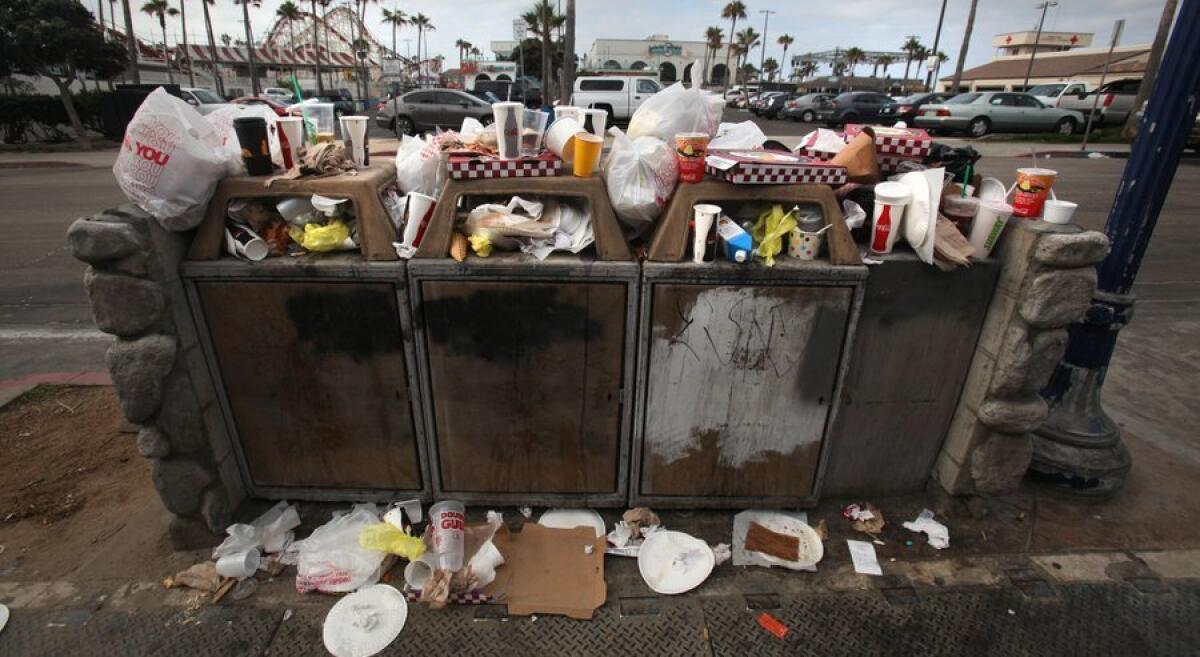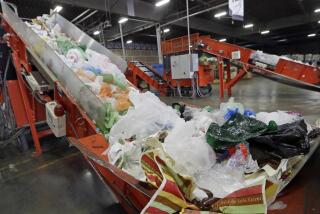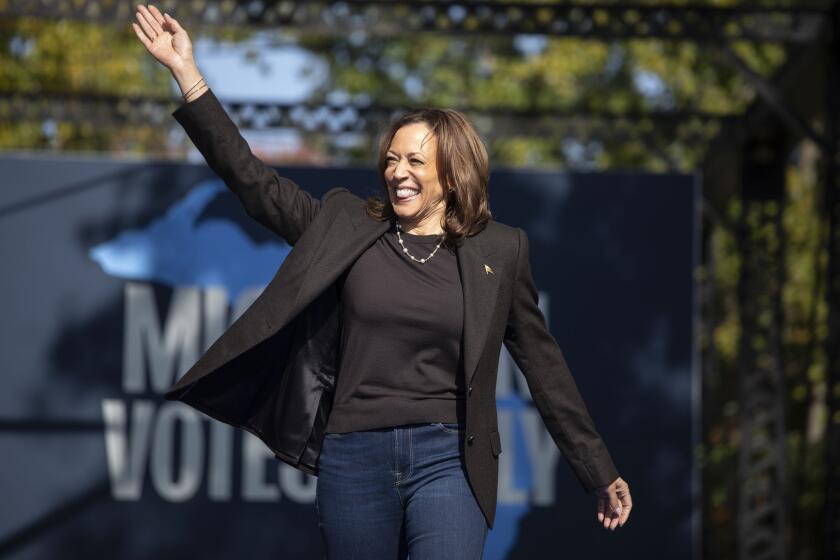Editorial: It’s time to talk about a California plastic tax

During the debate this year about whether the California Legislature should adopt an ambitious plastic trash reduction law (the answer to which is, “absolutely”), no one really addressed the question of how to pay for the program. That’s critically important because it will not be cheap to create the infrastructure to recycle the mountains of plastic packaging generated in the state.
The proposed law would have required that by 2030, 75% of consumer products sold in the state be packaged in material that is being recycled or composted. And since China no longer wants to buy and recycle our garbage and the domestic market for plastic trash is weak, that recycling would have to be done here at home. The bills introduced by Assemblywoman Lorena Gonzalez (D-San Diego) and Sen. Ben Allen (D-Santa Monica) implied that the costs would be borne by manufacturers but didn’t get into the details.
Ultimately, the bill didn’t get a final vote before the legislative session ended in September and won’t be considered again until 2020. But thanks to a ballot measure filed this week by the coalition of environmental advocates who supported the bill, the question of a plastic tax will be faced head-on. If it qualifies for the November 2020 ballot, the “California Recycling and Plastic Pollution Reduction Act of 2020” would ask voters to endorse a tax of one penny on each plastic-wrapped product sold in California, to be paid by manufacturers. The tax would raise north of $1 billion a year and would fund the creation of recycling plants that could turn those single-use bags, bottles and food wrappers into new bags, bottles or wrappers.
It’s too early for us to endorse this proposed tax, which hasn’t even qualified for the ballot, as the right way to pay for what is otherwise a good law. But we’re pleased that the financing questions are being added to the discussion.
The ballot measure deviates from the bill in two other substantial ways: It would require that 100% (rather than just 75%) of all packaging be recycled or composted by 2030, and it would impose an immediate statewide ban on polystyrene takeout food containers, something that frankly should have been done by the Legislature years ago. More than 120 communities have already adopted some variety of ban on plastic foam takeout containers because of the cost to clean them up and the difficulty of recycling them: While polystyrene (known popularly, though incorrectly, as “Styrofoam”) is technically recyclable, it can’t be once it has been exposed to food.
Supporters say the ballot measure is not intended as a rebuke to the Legislature, but rather is a complementary proposal that offers another path should the bill stall again. That is a sensible approach. It’s tough enough to pass such a far-reaching bill in the Legislature, but adding a tax component would make it harder still. Proposition 26, approved by voters in 2010, requires a two-thirds vote in both houses of the Legislature for new taxes. Statewide ballot measures only require a majority vote to pass new taxes, and the supporters of the ballot measure say their polling shows that “plastic tax” is popular with people of all political stripes.
Perhaps the ideal solution is for Allen and Gonzalez to combine the best elements of their proposed law with those of this measure and come up with a compromise for the Legislature to place on the November 2020 ballot that, if passed, would have the blessing of both lawmakers and voters.
Ballot measure or bill, something must happen in 2020. Plastic waste can’t wait another year.
More to Read
A cure for the common opinion
Get thought-provoking perspectives with our weekly newsletter.
You may occasionally receive promotional content from the Los Angeles Times.










